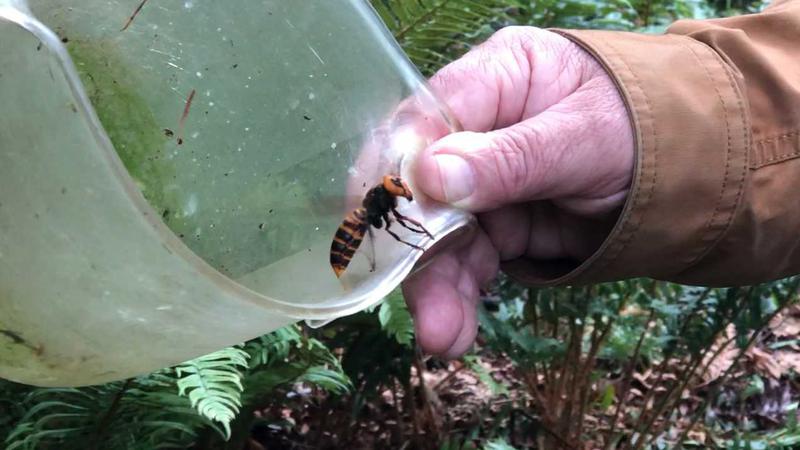
Asian giant hornet sightings evade widespread monitoring effort
NANAIMO — Fears have eased about an invasive honey bee-killing insect making B.C.’s south coast and the pacific northwest a permanent home.
Provincial apiculturist Paul van Westendorp reported no new confirmed Asian giant hornet sightings in British Columbia this year after a flurry of activity on mid Vancouver Island and the western Fraser Valley last year.
“It’s been a bit frustrating we haven’t been able to catch, or find, or trap any additional specimens of this particular hornet,” van Westendorp told NanaimoNewsNOW.
Van westendorp said none of the few invasive hornets found in the Lower Mainland and Washington state since last year were associated with a nest, which was the case in Nanaimo on Sept. 18, 2019.


